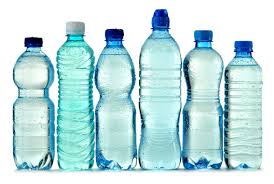The United Nations Environment Program (UNEP) and the European Commission's Joint Research Center (JRC) have this week launched the World Water Quality Alliance (WWQA) in "Ispra" , Italy. The Alliance will provide governments and other stakeholders with relevant evidence-based assessments, scenarios and solutions and services on water quality terms. It is estimated that the 80% from the wastewater is released directly into water bodies without treatment.
With growing concern over the worsening global freshwater crisis, UN agencies, research institutions and space agencies this week launched the Global Water Quality Alliance, which brings together a wide range of expertise in the fields of water quality science, technological innovation, governance and diplomacy to find solutions.
According to a press release, the Alliance will include more than 50 organizations; the diverse backgrounds of the partners ensure that the Alliance's work will be useful to a broad spectrum of stakeholders.
At the third UN Environment Assembly, countries adopted a comprehensive resolution to address water pollution to protect and restore water-related ecosystems. Among other things, the resolution calls for better data collection, water control and monitoring, and technologies to recycle and reuse wastewater.

Clean water is essential for both nature and people. However, surface and groundwater are under enormous pressures: estimates indicate that up to a third of all rivers in developing countries may already be affected by severe pollution and high levels of salinity.
According to statements by Giovanni de Santi, director of the Joint Research Center for Sustainable Resources, "water is where we experience the most direct impact of climate change on our way of life. The European Green Deal aims to ensure a secure future for future generations. There is no doubt that we must put the global water challenge at the center of our work. Therefore, it is an honor to act as a bridge that facilitates collaboration between scientific disciplines and shortens the distance between scientific knowledge and political action.
It is estimated that the 80% of waste water is released directly into bodies of water without treatment. The poor quality of surface water bodies in lakes and rivers, the main sources of drinking water for millions of people worldwide, leads to diarrheal diseases, which are among the leading causes of death and disease worldwide. world In the developing world, upstream pollution can cause reductions of up to 30-40 percent in annual downstream GDP growth.
The Alliance will provide a baseline assessment of global water quality and therefore build on an ongoing overview of global water quality and its drivers. Second, the Alliance will also develop evidence-based products to inform better global, regional and local water management. Its aim is to work with partners on the ground, facilitating a “bottom-up” approach to co-design and develop products for medium and long-term use and operation.
